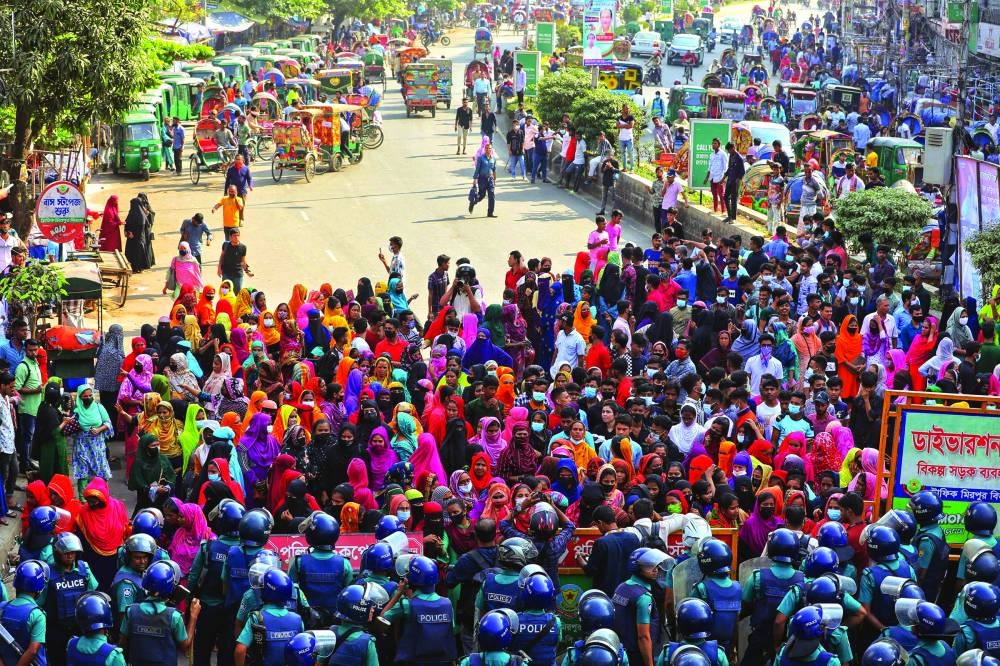
Garment workers block a key intersection as they protest in Dhaka yesterday, demanding a near-tripling of the minimum wage to 23,000 taka ($208).
Hundreds of Bangladeshi garment workers rallied yesterday demanding fair wages after dismissing a pay offer as too small, as the death toll from the violent protests that erupted last month rose to four.
Bangladesh has been rocked by the worst labour unrest in a decade with tens of thousands of workers clashing with police, demanding a near-tripling of the minimum wage to 23,000 taka ($208). Scores of factories have been damaged.
Bangladesh’s 3,500 garment factories account for around 85% of its $55bn in annual exports, supplying many of the world’s top brands including Levi’s, Zara and H&M.
But conditions are dire for many of the sector’s 4mn workers, the vast majority of whom are women whose monthly pay, until recently, started at 8,300 taka ($75).
A government-appointed panel raised the sector’s wage by 56.25% on Tuesday to 12,500 taka, but garment workers have rejected the hike. Since the pay offer, their protests escalated with at least 70 factories ransacked.
Police said Jalal Uddin, 42, a garment worker who was injured in clashes with officers earlier this month in Gazipur, north of the capital Dhaka, died from his injuries on Saturday.
Uddin’s death takes the number killed in the protests to four, police said.
“He died at the Dhaka Medical College Hospital. He was injured during a protest several days ago,” Bacchu Mia, a police inspector, said.
Uddin’s brother-in-law Rezaul Karim told reporters he had been shot in the stomach by a shotgun, and had been brought to Dhaka for treatment. Police said over 10,000 workers left their shifts when at least nine factories were shut down for the day in Dhaka’s northern Mirpur neighbourhood yesterday morning. “Some 500 of these workers tried to block a road as part of the minimum wage protests. There was no violence,” police inspector Masud Sarker said.
Unions have accused the government of launching a crackdown against protesters and of targeting grass-roots organisers.
Police said 150 factories had closed in the major industrial towns of Ashulia and Gazipur, both north of Dhaka, as manufacturers feared further strikes when Bangladesh’s working week began on Saturday.
